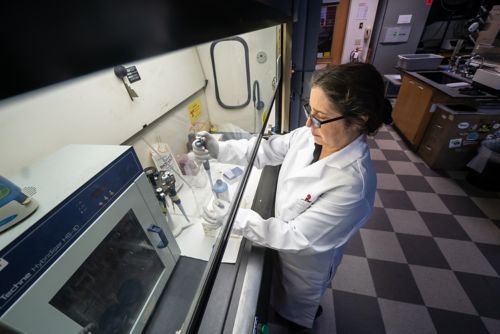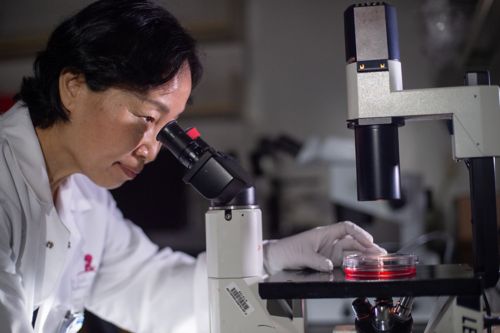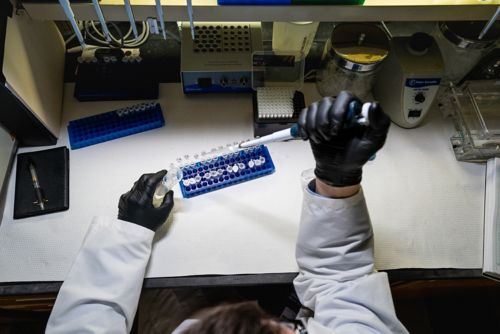St. Jude Family of Websites
Explore our cutting edge research, world-class patient care, career opportunities and more.
St. Jude Children's Research Hospital Home

- Fundraising
St. Jude Family of Websites
Explore our cutting edge research, world-class patient care, career opportunities and more.
St. Jude Children's Research Hospital Home

- Fundraising
Gerard P. Zambetti Lab
Exploring the p53 tumor suppressor and its role in pediatric cancers
About the Zambetti Lab
Pediatric adrenocortical carcinoma is considered a rare tumor, but incidence is particularly high in Brazilian children. Its concentrated prevalence is due to an inherited mutation in the p53 tumor suppressor. Our lab has a longstanding collaboration with colleagues in Brazil designed to understand the consequences of this mutation. We use genetic sequencing and experimental modeling to decipher the role of p53 in disease.

Our research summary
The research program in our laboratory focuses on the TP53 gene, particularly its regulators, the mechanisms underlying its activation, and the downstream targets that carry out its work as a tumor suppressor. Although we investigate p53 in the context of pediatric cancer generally, we have a specific interest in the role of p53 in adrenocortical carcinoma.
In the U.S., the incidence of adrenocortical carcinoma is 1 in 3 million – so rare that most pediatric oncologists can work their entire careers and never see a single case. When a case of adrenocortical carcinoma does occur, the treatment options for children are poor. In contrast to the US., the incidence of this cancer in Brazil is significantly higher and is attributed to an inherited, mutated form of the TP53 gene. For more than two decades our laboratory has been collaborating with colleagues in Brazil to better understand the structural and functional consequences of this p53 germline mutation.

Our laboratory conducts tissue culture studies where we reintroduce the mutated protein into cell lines to see whether it can control the cell cycle or influence cell death. We have developed a mouse model with the germline TP53 mutation as well as a novel PCR test for this hypomorphic mutant.
We have also been part of the Pediatric Cancer Genome Project at St. Jude, contributing 19 pediatric adrenocortical carcinoma samples matched with blood samples, and we developed a tumor bank as part of an international pediatric adrenocortical tumor registry (IPACTR). Collecting tumor samples from around the world, our laboratory conducts whole genome sequencing on these rare cancers. From those analyses, we determined that copy neutral loss of heterozygosity of specific genes and chromosomes may be driving the proliferation and survival of the adrenal tumors we are investigating.
In addition, our laboratory has generated mouse models that have mutations of both p53 and a gene called XAF1. The presence of both mutations underlies the significantly increased risk of adrenocortical carcinoma and other tumors in Brazilian carriers. We are currently exploring the underlying biology of this mutation combination to understand disease mechanism and improve risk prediction.

Selected Publications
Contact us
Gerard P. Zambetti, PhD
Member, St. Jude Faculty
Associate Director, Education and Training, Comprehensive Cancer Center
Department of Pathology
MS 276
St. Jude Children's Research Hospital

Memphis, TN, 38105-3678 USA GET DIRECTIONS